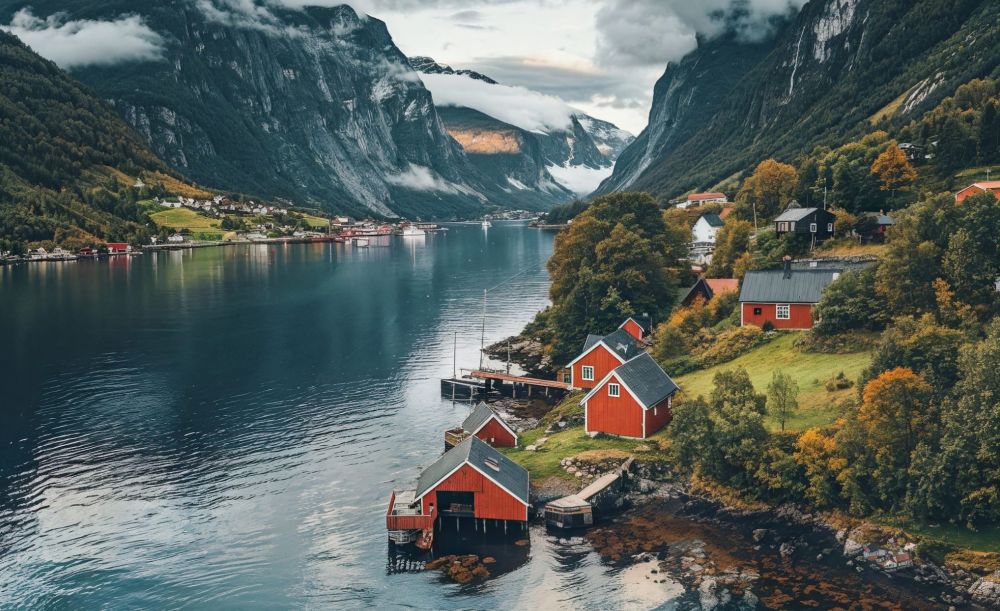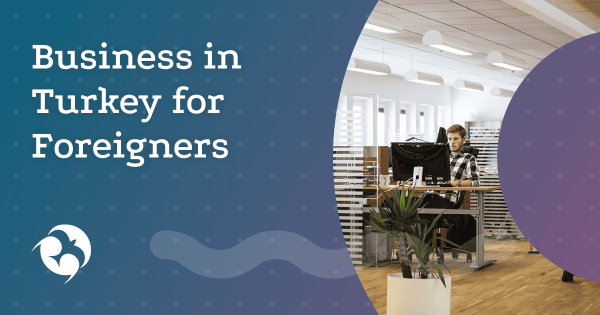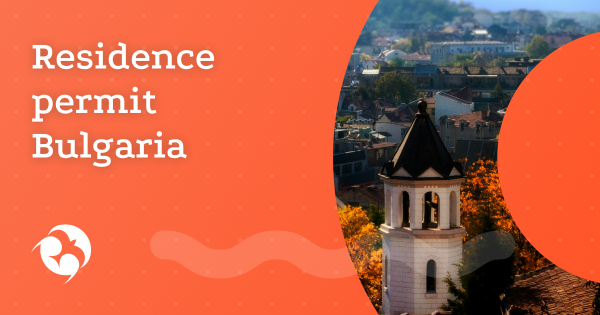A country on the Scandinavian Peninsula is famous for its fjords, Vikings, trolls, and more. Norway has entered the top 7 best countries for remote work. For immigrants, the government has opened the Visit Norway website with information about visas and programs.
Relocators and individual entrepreneurs with an annual income of 360,000 NOK are eligible to participate in the Digital Nomad program. They can legally stay in the land of the midnight sun for two years, earn money abroad as self-employed or under contract with Norwegians. Digital nomads and freelancers work in specialized fields. Program participants are allowed to extend their stay for up to six years and apply for PR.
Specifics of Norway’s Freelance Visa
The country consistently ranks high in the Legatum Prosperity Index, particularly in safety and personal freedom, including 2nd in social capital and 3rd in healthcare. Foreigners can legalize their stay in the country with a nomad visa. This program is designed for mobile people traveling the world with laptops and working remotely. In Oslo, Bergen, and Stavanger, convenient infrastructure has been created for digital nomads, with coworking spaces like Startup Campus, 657 Oslo, and WeWork Oslo.

- We will answer all your questions
- We will help you choose the best option
- We will guide you through every step or do everything for you
The Digital Nomad Visa in Norway is somewhat different from European programs. There are two projects operating within the Kingdom of Norway. Those drawn to the beauty of the Northern Lights head to Svalbard to work on the archipelago. After some time, they have the right to move to mainland Norway and continue working.
Applicants can include programmers/web developers, graphic designers, other digital tech specialists, marketers, technicians, and freelancers.
Key conditions for obtaining the visa in 2024:
- Annual income of 350,000 NOK (€35,000);
- Higher education;
- Relevant work experience;
- Rental accommodation in Norway.
The Independent Contractor Visa is open to third-country nationals earning income abroad. Relocators are granted individual entrepreneur status under certain conditions. Officials request documents confirming the activity. Self-employed individuals must prove sole ownership of a business in another country.
If an entrepreneur finds a new client or signs a contract under different terms, they are required to submit a new application to the local police office as per program requirements.
What Taxes Does a Freelancer Pay
The country has both a general and simplified tax system. After six months, relocators submit applications and receive tax cards (skattekort), which reflect their income with tax deductions (skatteoppgjør). They automatically become participants in a loyal tax program and pay income tax at a base rate of 23%. With income below 40,000 NOK, foreigners can claim a deduction of no more than 10%.
Tax table for digital nomads, freelancers, self-employed and sole proprietors
| Tax name | The amount of tax | Note |
| Income tax (personal income tax) | 22-45% | Progressive scale. Residents (stay of more than 183 days) pay with global income. For digital nomads on Independent Contractor Visa – 22%. Non–residents – 25% from Norwegian sources |
| Social contributions | 8,2-11% | For the self-employed: 11% with an income of less than 69,650 NOK/year. For Independent Contractor Visa – 8.2%. Includes pension contributions and medical insurance |
| VAT (MVA) | 24% | Required for annual turnover of more than 50,000 NOK. Preferential rates of 15% (food), 12% (transport) |
| Corporate tax | 25% | For resident legal entities. Non-residents pay only from income in Norway |
| “Wealth” tax | 0,7-1,1% | Assets of more than 1.5 million NOK: bank deposits, securities, rental real estate |
| Tax on dividends | 22% | For residents. Non–residents – 25% |
| Property tax | 2,5% | Only for second homes and commercial properties. Basic housing is not taxed |
How Much Does the Visa Cost
Obtaining a residence permit for independent contractors and digital nomads costs 6,300 NOK (€600). The same amount is paid by expats for extensions. When submitting files through a visa center licensed by the embassy, an additional service fee of €25 is charged.
Required Documents
Entrepreneurs must first complete and print the UDI checklist, sign it, and gather a folder of documents translated into Norwegian and English.
Requirements for the basic package:
- Completed application form;
- Copy of passport and photo;
- Resume;
- Proof of self-employment;
- Proof of business abroad;
- Income certificate;
- Contract with a Norwegian client;
- Receipt of registration fee payment;
- Proof of residence address.
Relocants planning to work in their profession need diplomas to confirm their education. An immigration officer may request additional documents, recommendation letters, a work contract, or permission from a supervisor. The dossier review period is not regulated. The time depends on the country of submission. On average, the waiting period is 3-4 months.
Recent Changes in Norway’s Visa Policy
Since 2022, strict restrictions have been introduced for citizens of some countries. Tourist visas are no longer issued. Exceptions are made for children with invitations from their parents, or vice versa, and for citizens traveling for work, study, or humanitarian reasons.
According to open data from Google Trends and Yandex.Wordstat, over the past year of 2024, the number of inquiries related to obtaining “digital nomad” status remains consistently high despite the restrictions.
Frequently Asked Questions
The standard validity period of the permit is 2 years, with the possibility of extension up to 6 years, subject to compliance with financial and legal requirements. The period for a visa to Svalbard is similar, but the extension requires confirmation of the availability of housing in the archipelago.
The procedure consists of 5 key steps:
- Preparation of documents (translations, apostille) – 300-600€;
- Filling out the UDI checklist (free of charge, but requires notarization of the signature – 20-50 €);
- Application through the Embassy/police station (service fee of € 24.5 when applying to the visa application center);
- Waiting for a decision (3-4 months) – additional costs for extending the current lease/insurance if the deadlines are delayed;
- Obtaining a residence permit card (courier services – 30-50 €).
The average waiting period for a decision is 3-4 months from the date of submission of the full package of documents. Deadlines may vary depending on the workload of migration services and the country of application. For example, applications submitted through Norwegian diplomatic missions in the EU are often processed faster than in third countries. In rare cases, in the absence of additional requests from the UDI (Norwegian Immigration Department), the procedure takes 2.5-3 months.
Yes, the application procedure for the archipelago takes 20-30% longer due to the mandatory verification of the rental agreement (the limited fund requires additional confirmations), verification of the higher education diploma (only for Svalbard), coordination with the governor of Svalbard (adds 2-4 weeks to the standard time).
Delays are most often caused by:
- Incomplete package of documents (additional information is required, which adds 1-2 months to the deadline);
- The need to verify contracts with Norwegian clients (especially for an Independent Contractor visa);
- Financial viability checks for non-obvious sources of income (for example, cryptocurrency transactions);
- Seasonal influx of applications (peak observed from January to March).
When submitted inside Norway (through a police station), the time limit is reduced to 2-2.5 months due to the absence of an interdepartmental transfer stage. For applicants from third countries, the period increases due to the need for translations of documents through certified specialists (+2 weeks) and apostillation of certificates (+1-3 weeks, depending on the country).
When applying for a digital nomad visa, the passport must be valid for at least 1 year at the time of application, have at least 2 blank pages for the visa, and be presented in the original with copies of all used pages.
To confirm financial viability, it is necessary to provide bank statements demonstrating a stable income, to confirm an annual income of at least 35,719 € (about 350,000 Norwegian kroner). If the application is for an Independent Contractor visa, you must show a contract with at least one Norwegian client who ensures payment of at least the minimum wage in Norway. For a visa to Svalbard, it is enough to demonstrate a stable income from sources outside Norway.
An Independent Contractor visa requires a contract with a Norwegian client.
A higher education diploma is required for a visa to Svalbard. The request requires confirmation of the place of residence directly on the archipelago, which is more difficult due to the limited housing stock. It is especially important to confirm qualifications and experience in digital professions (programming, SEO, social media marketing, etc.).
To confirm self-employment, you must provide documents on business registration in the country of origin, contracts with clients (including foreign ones), and tax returns (confirming income from self-employment). In the case of an Independent Contractor visa, it is a contract with a Norwegian client. You will also need a history of working with a project portfolio.
Medical insurance for a digital nomad visa must cover the entire period of stay in Norway, have a sufficient amount of insurance coverage (a specific amount is usually indicated on the embassy’s website), be valid in Norway and cover the costs of medical care and possible repatriation.
All documents must be translated into Norwegian or English. Some documents (for example, a higher education diploma) require an apostille. The official translation must be performed by a certified translator. The translation of documents may require additional costs.
To confirm your place of residence, you must provide a rental agreement in Norway (or in Svalbard for the appropriate visa). The contract must be for the entire period of stay or with the possibility of extension. This is especially important for Svalbard, as there is very little housing there. The document must contain the exact address of the residence and the terms of the lease.
For the correct design of the UDI checklist, it is necessary:
- Fill it out online on the official website of the Norwegian Immigration Department (UDI);
- Print the fully completed list;
- Sign the document with your own hand;
- Be sure to answer all the questions that are at the end of the list;
- Take the signed document with you to a meeting at the embassy or consulate.
There are no official acceleration programs for digital nomad visas. However, practice shows that applications submitted through accredited visa centers in Scandinavia are processed 10-15 days faster. If you have a pre-arranged rental agreement through platforms like Flatio (the official partner of UDI), you can also count on speeding up the procedures.
If the documents are submitted simultaneously by the spouse and children, the total review period is increased by 1-1.5 months. Separately submitted applications from relatives are considered 3-4 months from the date of receipt of the main permit.
The permit is activated when submitted from abroad – from the date of crossing the Norwegian border. In case of internal filing – from the date of approval of the application. Important: if the visa is received but not used within 6 months, it will be cancelled.
The procedure takes 2-3 months and includes submitting a request (4 months before the expiration of the current permit), updating financial documents (statements must be no older than 1 month), and confirming the absence of tax arrears in Norway.
After receiving a negative decision, the applicant can file an appeal within 3 weeks (review – 1-2 months), correct the shortcomings and resend the documents after 6 months. Previous fees paid (600€) will not be refunded.
The basic consular fee is 600€ (NOK 6,300) both for the initial submission and for the extension. This amount is paid through the UDI (Norwegian Immigration Office) portal when submitting documents. A similar rate applies for a visa to Svalbard.
Mandatory associated costs include:
- Medical insurance (coverage of at least 30,000€ for the entire period of stay) – from 200€ to 500€, depending on age and conditions;
- Translation of documents into Norwegian/English (15-30€ per page);
- Apostillation of certificates and diplomas (50-100€ per document);
- Rental of housing (deposit + prepayment) – from 1,000€ per month for the central regions of Norway.
If you stay for more than 183 days a year, you must pay personal income tax of 22% of the income earned in Norway, social contributions (8.2% of earnings) for Independent Contractor Visa. For residents of Svalbard, the personal income tax rate has been reduced to 16.8%, but applies only to income earned on the archipelago.
A 2–year extension requires a re–payment of the 600€ fee, proof of income for the last 12 months (statements from the Norwegian bank account – 10-20€ per document), an updated lease agreement (re-registration at the Brønnøysund Register Centre – 50€).
Yes. For a visa to Svalbard, an additional diploma of higher education is required (legalization through NOKUT – 260 €), proof of housing in the archipelago (deposit up to 5,000 € due to a shortage of real estate), medical examination for work in Arctic conditions – 150-300 €.
Yes, cost reduction is possible for graduates of Norwegian universities (30% discount on the consular fee), participants in startup programs (50% compensation for legal support costs), family applicants (a single fee of 600 € for the main applicant + 300€ for the spouse / child).
The total cost of applying for a digital nomad visa to Norway ranges from 2,500€ to 5,000€, taking into account all stages and related costs.
It is not possible to obtain Norwegian citizenship directly through a digital nomad visa. The Independent Contractor Visa allows you to legally live and work in Norway for up to 2 years, with the possibility of extension. This type of permit is considered temporary and does not automatically lead to permanent residence or citizenship.












